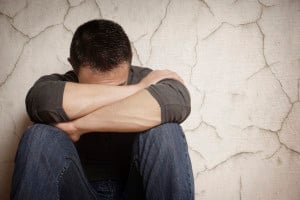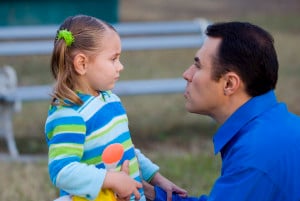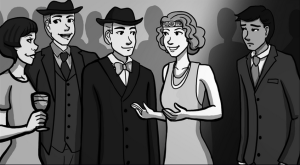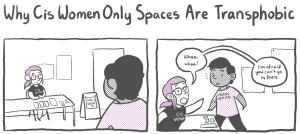Originally published on The Adversity Within and republished here with the author’s permission.
I emerge from this conversation astonished. I’ve seen this a million times before, but it still gets me every time.
I’m listening to a man tell a story. A woman he knows was in a devastating car accident; her life shattered in an instant. She now lives in a state of near-permanent pain, a paraplegic, many of her hopes stolen.
He tells of how she had been a mess before the accident, but that the tragedy had engendered positive changes in her life. That she was, as a result of this devastation, living a wonderful life.
And then he utters the words. The words that are responsible for nothing less than emotional, spiritual and psychological violence:
Everything happens for a reason. That this was something that had to happen in order for her to grow.
That’s the kind of bullshit that destroys lives. And it is categorically untrue.
It is amazing to me that so many of these myths persist—and that is why I share actionable tools and strategies to work with your pain in my free newsletter. These myths are nothing more than platitudes cloaked as sophistication, and they preclude us from doing the one and only thing we must do when our lives are turned upside down: grieve.
You know exactly what I’m talking about. You’ve heard these countless times. You’ve probably even uttered them a few times yourself. And every single one of them needs to be annihilated.
Let me be crystal clear: if you’ve faced a tragedy and someone tells you in any way, shape or form that your tragedy was meant to be, that it happened for a reason, that it will make you a better person, or that taking responsibility for it will fix it, you have every right to remove them from your life.
Grief is brutally painful. Grief does not only occur when someone dies. When relationships fall apart, you grieve. When opportunities are shattered, you grieve. When dreams die, you grieve. When illnesses wreck you, you grieve.
So I’m going to repeat a few words I’ve uttered countless times; words so powerful and honest they tear at the hubris of every jackass who participates in the debasing of the grieving:
Some things in life cannot be fixed. They can only be carried.
These words come from my dear friend Megan Devine, one of the only writers in the field of loss and trauma I endorse. These words are so poignant because they aim right at the pathetic platitudes our culture has come to embody on an increasingly hopeless level. Losing a child cannot be fixed. Being diagnosed with a debilitating illness cannot be fixed. Facing the betrayal of your closest confidante cannot be fixed.
They can only be carried.
I hate to break it to you, but although devastation can lead to growth, it often doesn’t. The reality is that it often destroys lives. And the real calamity is that this happens precisely because we’ve replaced grieving with advice. With platitudes. With our absence.
I now live an extraordinary life. I’ve been deeply blessed by the opportunities I’ve had and the radically unconventional life I’ve built for myself. Yet even with that said, I’m hardly being facetious when I say that loss has not in and of itself made me a better person. In fact, in some ways it’s hardened me.
While so much loss has made me acutely aware and empathetic of the pains of others, it has made me more insular and predisposed to hide. I have a more cynical view of human nature, and a greater impatience with those who are unfamiliar with what loss does to people.
Above all, I’ve been left with a pervasive survivor’s guilt that has haunted me all my life. This guilt is really the genesis of my hiding, self-sabotage and brokenness.
In short, my pain has never been eradicated, I’ve just learned to channel it into my work with others. I consider it a great privilege to work with others in pain, but to say that my losses somehow had to happen in order for my gifts to grow would be to trample on the memories of all those I lost too young; all those who suffered needlessly, and all those who faced the same trials I did early in life, but who did not make it.
I’m simply not going to do that. I’m not going to construct some delusional narrative fallacy for myself so that I can feel better about being alive. I’m not going to assume that God ordained me for life instead of all the others so that I could do what I do now. And I’m certainly not going to pretend that I’ve made it through simply because I was strong enough; that I became “successful” because I “took responsibility.”
There’s a lot of “take responsibility” platitudes in the personal development space, and they are largely nonsense. People tell others to take responsibility when they don’t want to understand.
Because understanding is harder than posturing. Telling someone to “take responsibility” for their loss is a form of benevolent masturbation. It’s the inverse of inspirational porn: it’s sanctimonious porn.
Personal responsibility implies that there’s something to take responsibility for. You don’t take responsibility for being raped or losing your child. You take responsibility for how you choose to live in the wake of the horrors that confront you, but you don’t choose whether you grieve. We’re not that smart or powerful. When hell visits us, we don’t get to escape grieving.
This is why all the platitudes and fixes and posturing are so dangerous: in unleashing them upon those we claim to love, we deny them the right to grieve.
In so doing, we deny them the right to be human. We steal a bit of their freedom precisely when they’re standing at the intersection of their greatest fragility and despair.
No one—and I mean no one—has that authority. Though we claim it all the time.
The irony is that the only thing that even can be “responsible” amid loss is grieving.
So if anyone tells you some form of get over it, move on, or rise above, you can let them go.
If anyone avoids you amidst loss, or pretends like it didn’t happen, or disappears from your life, you can let them go.
If anyone tells you that all is not lost, that it happened for a reason, that you’ll become better as a result of your grief, you can let them go.
Let me reiterate: all of those platitudes are bullshit.
You are not responsible to those who try to shove them down your throat. You can let them go.
I’m not saying you should. That is up to you, and only up to you. It isn’t an easy decision to make and should be made carefully. But I want you to understand that you can.
I’ve grieved many times in my life. I’ve been overwhelmed with shame and self-hatred so strong it’s nearly killed me.
The ones who helped—the only ones who helped—were those who were there. And said nothing.
In that nothingness, they did everything.
I am here—I have lived—because they chose to love me. They loved me in their silence, in their willingness to suffer with me, alongside me, and through me. They loved me in their desire to be as uncomfortable, as destroyed, as I was, if only for a week, an hour, even just a few minutes.
Most people have no idea how utterly powerful this is.
Are there ways to find “healing” amid devastation? Yes. Can one be “transformed” by the hell life thrusts upon them? Absolutely. But it does not happen if one is not permitted to grieve. Because grief itself is not an obstacle.
The obstacles come later. The choices as to how to live; how to carry what we have lost; how to weave a new mosaic for ourselves? Those come in the wake of grief. It cannot be any other way.
Grief is woven into the fabric of the human experience. If it is not permitted to occur, its absence pillages everything that remains: the fragile, vulnerable shell you might become in the face of catastrophe.
Yet our culture has treated grief as a problem to be solved, an illness to be healed, or both. In the process, we’ve done everything we can to avoid, ignore, or transform grief. As a result, when you’re faced with tragedy you usually find that you’re no longer surrounded by people, you’re surrounded by platitudes.
What to Offer Instead
When a person is devastated by grief, the last thing they need is advice. Their world has been shattered. This means that the act of inviting someone—anyone—into their world is an act of great risk. To try and fix or rationalize or wash away their pain only deepens their terror.
Instead, the most powerful thing you can do is acknowledge. Literally say the words:
I acknowledge your pain. I am here with you.
Note that I said with you, not for you. For implies that you’re going to do something. That is not for you to enact. But to stand with your loved one, to suffer with them, to listen to them, to do everything butsomething is incredibly powerful.
There is no greater act than acknowledgment. And acknowledgment requires no training, no special skills, no expertise. It only requires the willingness to be present with a wounded soul, and to stay present, as long as is necessary.
Be there. Only be there. Do not leave when you feel uncomfortable or when you feel like you’re not doing anything. In fact, it is when you feel uncomfortable and like you’re not doing anything that you must stay.
Because it is in those places—in the shadows of horror we rarely allow ourselves to enter—where the beginnings of healing are found. This healing is found when we have others who are willing to enter that space alongside us. Every grieving person on earth needs these people.
Thus I beg you, I plead with you, to be one of these people.
You are more needed than you will ever know.
And when you find yourself in need of those people, find them. I guarantee they are there.
Everyone else can go.
[do_widget id=’text-101′]
Tim J. Lawrence is the writer behind The Adversity Within, a blog dedicated to examining the topic of resilience in the face of adversity, while inspiring readers to stand headstrong in their grief and fight for their own evolution. Living with cerebral palsy and epilepsy, I explore topics like post-traumatic growth, survival, and self-reliance. No one should face adversity alone. Follow him along on Facebook and Twitter.
Search our 3000+ articles!
Read our articles about:
Our online racial justice training
Used by hundreds of universities, non-profits, and businesses.
Click to learn more





















